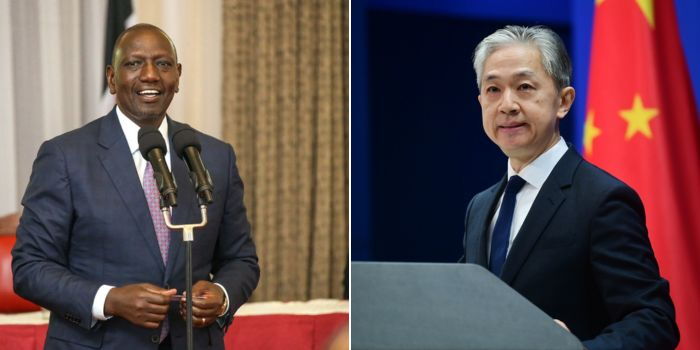

International Monetary Fund (IMF), World Bank and China, among other creditors, on Wednesday, April 12, agreed to formulate frameworks on restructuring debt amid the crisis in Kenya.
In a statement shared by World Bank, different lenders converged during the Global Sovereign Debt Roundtable (GSDR) where they focused on actions to be taken to expedite the debt restructuring process and even make them more efficient.
Among the key issues listed during the roundtable, the creditors agreed to formulate strategies informing debt cut-off dates, service suspension, and treatment of arrears.
To fast-track the process, the lenders agreed to organise a workshop to break down the issues regarding debt and sustainability.
"To clarify key concepts to support predictability and fairness of debt restructuring processes, a workshop will be organised in the next weeks on how to assess and enforce comparability of treatment," World Bank's statement read in part.
"Moreover, further work will be undertaken on principles regarding cut-off dates, formal debt service suspension at the beginning of the process, treatment of arrears, and perimeter of debt to be restructured, including with regards to domestic debt," it added.
"To clarify key concepts to support predictability and fairness of debt restructuring processes, a workshop will be organised in the next weeks on how to assess and enforce comparability of treatment," World Bank's statement read in part.
"Moreover, further work will be undertaken on principles regarding cut-off dates, formal debt service suspension at the beginning of the process, treatment of arrears, and perimeter of debt to be restructured, including with regards to domestic debt," it added.
On Monday, December 19, IMF approved a Ksh55 billion ($447.39 million) to Kenya. That was the fourth disbursement of the Ksh255 billion loan agreed upon by IMF and retired President Uhuru Kenyatta in April 2021.
The Monetary Fund helped the former regime remain stable after the pandemic by giving the country loans that were used to support various sectors of the economy.
China, on the other hand, supported Kenya in various infrastructural projects. Projects funded by Chinese firms include the Nairobi Expressway, the Standard Gauge Railway (SGR) and Thika Super Highway, among others.
Despite funding numerous projects, China dispelled reports that it had set a trap for Kenya.
"China is not the source of debt trap for African countries but a partner lifting them out of a poverty trap," China Foreign Ministry Spokesperson Wang Wenbin stated, on Monday, April 10.
Kenya Debt Status
The Central Bank of Kenya (CBK) data revealed that Kenya's external debt stood at Ksh4.7 trillion. The country's total debt, on the hand, was at Ksh9.182 trillion.
Despite the cash crisis that had delayed civil servants' salaries, David Ndii, President William Ruto's Council of Economic Advisors Chairperson, dismissed claims that Kenya would default.
“We are not insolvent. We can finance repayments. It is a significant sacrifice but we are actually able to pay,” Ndii stated.
On Tuesday, April 11, Ruto ruled out getting more loans to pay salaries. He insisted that Treasury was looking to release funds to clear salaries.
|